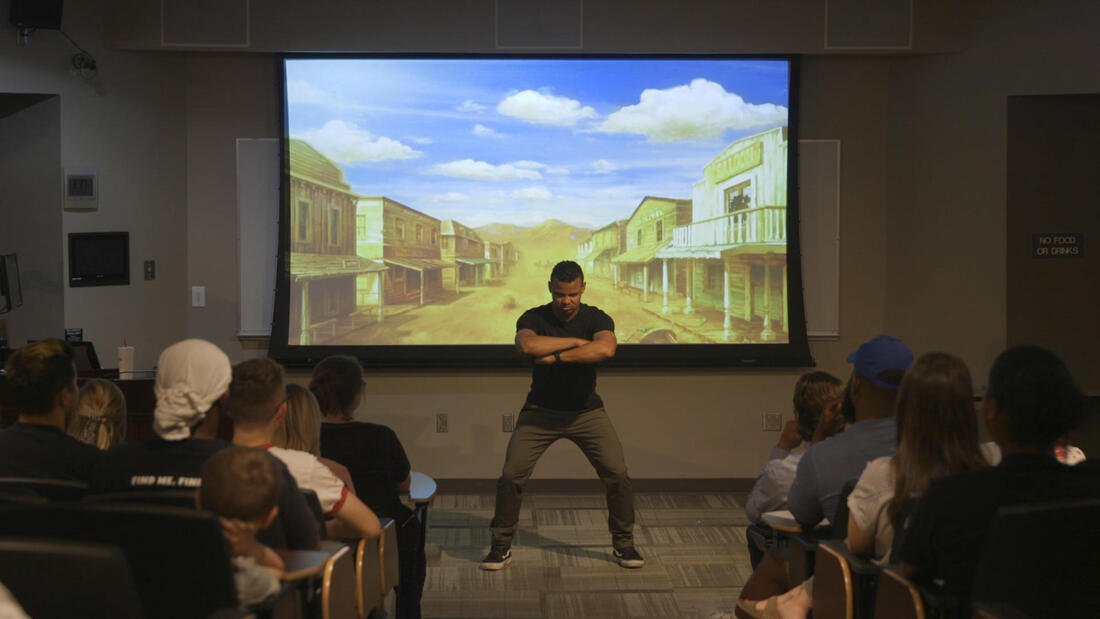Article: "Center for Public Television Wins Emmy Award"
Visual Vernacular
|
|
Visual Vernacular: A different kind of storytellingJustin Perez is a fifth generation deaf person, but has had no problem making himself heard. Originally from Houston, Texas, Perez has spent time working for the Alabama Department of Mental Health Deaf Services as a Visual Gestural Specialist, and for the University of Alabama as an American Sign Language instructor. He has since moved on to work for the Center for Deaf and Hard of Hearing Education in Indianapolis as an Educational Consultant. Perez also travels around the country, teaching classes and workshops about a type of performance art called Visual Vernacular. He came across the storytelling device in high school when he saw a friend perform it. "Visual Vernacular was really originated for storytellers," Perez said. But, he said, that's not all it's used for. "It can be used as a backup for communication," Perez said. "Those who are in a different country, it can be challenging to communicate, and gesturing can be used as a backup." Perez's son is also deaf, and they often perform Visual Vernacular together. "It's hard to find words to describe the feeling," he said. "It just makes my heart melt, and my heart races and I feel like glowing when I see my son doing that." While using Visual Vernacular is personal to Perez, he said it is meant for everyone. "It doesn't matter who I'm talking to, deaf people, hearing people," he said. "It's a very easy way of communication and understanding, and it's just really a part of me."
|

